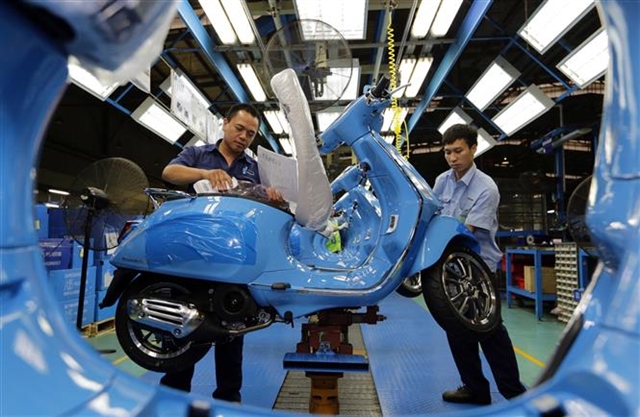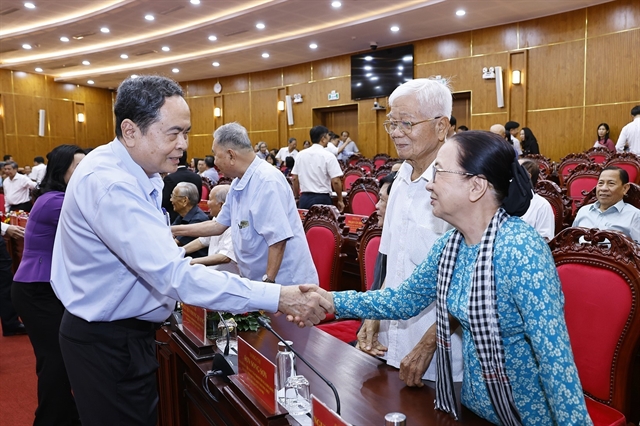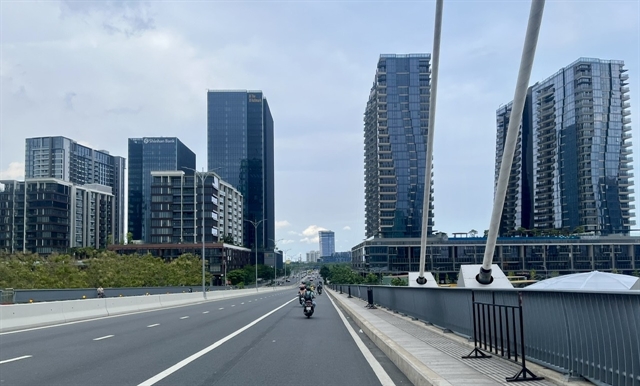 Economy
Economy


|
| Motorbike production line of Piaggio Vietnam's factory in Bình Xuyên Industrial Park, Vĩnh Phúc Province. — VNA/VNS Photo Trần Việt |
HÀ NỘI — The confidence of European enterprises in Việt Nam’s economy declined for a second quarter but the S-shaped country still remains in the top five global investment destinations for their companies, the latest Business Climate Index (BCI) published by the European Chamber of Commerce in Việt Nam (EuroCham) showed last week.
The BCI dropped below the baseline to 48.0 in Q4 2022, a drop of 14.2 points compared to three months ago and 25 points from the first quarter of the year.
Though Việt Nam’s economy grew over 8 per cent for the whole of 2022, this data comes amid continued global economic volatility resulting from a storms of factors including a slowdown in global growth, interest rate hikes, sustained inflation and bruised consumer confidence.
The number of companies expecting economic stabilisation or improvement in Q4 dropped to 27 per cent from 42 per cent in Q3, while the number of firms with growing sense of pessimism doubled from 19 per cent in Q3 to 38 per cent in Q4.
“Things were definitely less positive in the fourth quarter of 2022 than they were earlier in the year,” said EuroCham Chairman Alain Cany.
However, according to him, this should not be viewed as a cause for concern.
“In fact, Việt Nam’s economic opportunities continue to exceed those of its regional and international peers. This is evident from the fact that so many of EuroCham’s members consider Việt Nam central to their global investment strategies,” Cany said.
The report said 41 per cent of respondents stated their company is shifting operations from China to Việt Nam, up from 13 per cent in the third quarter, while nearly 35 per cent of firms ranked Việt Nam among the top five global investment destinations for their company, with 12 per cent stating that Việt Nam was their firm’s top investment site globally.
However, the report also pointed out three most significant regulatory barriers to foreign companies operating in Việt Nam including a lack of clarity regarding rules and regulations (51 per cent), administrative issues (41 per cent) and visa and work permit difficulties (30 per cent).
Despite that, 58 per cent were satisfied with the attention of policymakers paid to business needs when setting relevant policies.
In addition, BCI participants reported that the EU-Việt Nam Free Trade Agreement (EVFTA) had a positive effect on the growth of their businesses, their financial health through tariff reductions and the strength of their supply chains. — VNS




